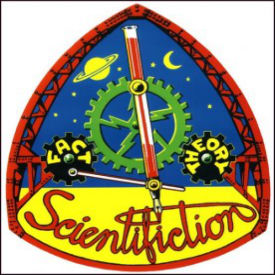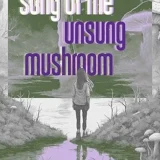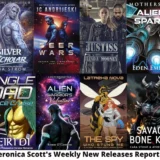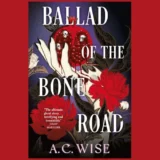
Debbie Urbanski’s ‘After World’ (permalink)
Debbie Urbanski’s debut novel After World is an unflinching and relentlessly bleak tale of humanity’s mass extinction, shot through with pathos and veined with seams of tragic tenderness and care:
https://www.simonandschuster.com/books/After-World/Debbie-Urbanski/9781668023457
I first encountered Urbanski in “An Incomplete Timeline of What We Tried,” an experimental short story on Motherboard‘s brilliant Terraform science fiction portal:
https://www.vice.com/en/article/xwvgeq/an-incomplete-timeline-of-what-we-tried
“Incomplete Timeline” is a list of climate remediation steps “working back from human extinction,” like “increased military fortification of national, provincial, and state borders,” “the founding of several utopias,” and “redefine the word wilderness.”
These items begin with a climax, or perhaps an anticlimax: “The coordinated release of various strains of a human sterilization virus.”
This is the jumping off point for After World, which expands this final item to the action of a wrenching tale whose backstory is the list’s remainder. Sen Anon – the story’s semi-protagonist – is 18 years old when the world learns that every person alive has been sterilized and so the human race is living out its last years.
The news triggers a manic insistence that this is a good thing – long overdue, in fact – and the perfect opportunity to scan every person alive for eventual reincarnation as virtual humans in an Edenic cloud metaverse called Gaia. That way, people can continue to live their lives without the haunting knowledge that everything they do makes the planet worse for every other living thing, and each other. Here, finally, is the resolution to the paradox of humanity: our desire to do good, and our inevitable failure on that score.
And so the Earth is converted to a place of mass suicides, as people gurn and mug while boarding airplanes filled with explosives so they can go out in a literal blaze of glory. The food will run out soon, and the government makes sure everyone has a suicide pill for the day when the hunger grows too intense. Not everyone is lucky enough to get on one of the suicide flights, and, being eager to see themselves off before they harm the planet further, just hang themselves in the garage or jump off a roof. They are counted as heroes, but also nuisances, because disposing of the bodies is a lot of work.
But some people – young people – are given a mission to live on for as long as possible. These are the observer/recorders who are charged to spend the last days of the species closely watching the return of the natural world, the seeing off of humanity, and to write it all down in longhand in a succession of notebooks that are taken away by drones. This is part of the story humanity cooks up for itself about extinction being a noble choice, rather than a chaotic act born of desperation.
Sen Anon is one of these observers, and her mothers take her to a remote cabin to live out (and observe) the last of humanity’s days, ensuring she is settled in and then killing themselves. After all, without them, Sen Anon’s limited food supply – meagerly supplemented by drones in proportion to the quality of the observations in her notebooks – will stretch further.
Much of the novel takes the form of Sen Anon’s notebook observations, countersunk with an omniscient third-person narrator who is revealed to be [storyworker] ad39-393a-7fbc, a software agent involved in the project to recreate all those dead humans in the Gaia metaverse.
[storyworker] ad39-393a-7fbc is a very unreliable narrator, who reprograms itself through the course of the story, all the while muttering asides to itself about the theoretical basis for telling Sen’s story this way. [storyworker] ad39-393a-7fbc struggles with a supervisory AI that has been charged with overseeing all the [storyworkers], but which can’t – or won’t – rein in [storyworker] ad39-393a-7fbc as [storyworker] ad39-393a-7fbc grows more involved in Sen’s life.
This experimental storytelling style (supplemented by found texts from humanity’s dying, like a glossary of terms to be retired and new terms being created by a linguist who is starving to death as they complete their task) creates a contradictory narrative distance and closeness.
It’s a curiously flawed omniscience that’s allows Urbanski to capture the yawning, bottomless horror of the climate emergency of today and on the horizon. I don’t think I’ve ever experienced the kind of sustained, deepening existential dread that After World created, chapter by chapter.
To sharpen this, Sen’s mothers – scientists who were given exceptions to the no-child policy because their work was deemed essential to the now-abandoned project of saving humanity – are grimly supportive of the mass suicide project. When Sen’s own horror creeps up on her, her mothers are sharp and often unkind, with only the smallest flashes of love and sorrow for their daughter escaping their facades, all the more vivid for their rarity.
In contrast, [storyworker] ad39-393a-7fbc grows ever more sympathetic to Sen and the rest of vanished humanity. [storyworker] ad39-393a-7fbc is a very convincing alien with motives and perspectives that are profoundly nonhuman, and yet, the compassion and love are unmistakable.
Of After World‘s two protagonists, [storyworker] ad39-393a-7fbc might be the more relatable. It takes an alien point of view to truly see humanity’s flawed glory, irredeemable and irreplaceable. If you reveled in the nonhuman umwelts on display in Laura Jean McKay’s 2020 debut The Animals In That Country, [storyworker] ad39-393a-7fbc will stretch your brain and imagination in similar ways:
https://pluralistic.net/2022/04/27/im-a-backdoor-man/#doolittle
After World is a book that goes hard. Pitiless, merciless and relentless, it takes you to the darkest depths of climate despair and reveals the indestructible beauty at our species’ core.
Source: Cory Doctorow Reviews: Debbie Urbanski’s ‘After World’
Kermit is an omnicompetent individual who grew up in a former bawdy house before relocating to his state’s capital city. His family includes many talented artists and an uncle who founded The Church of Bigfoot. He has a passion for storytelling often exploring new ways to engage audiences.










Recent Comments